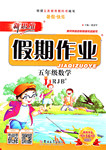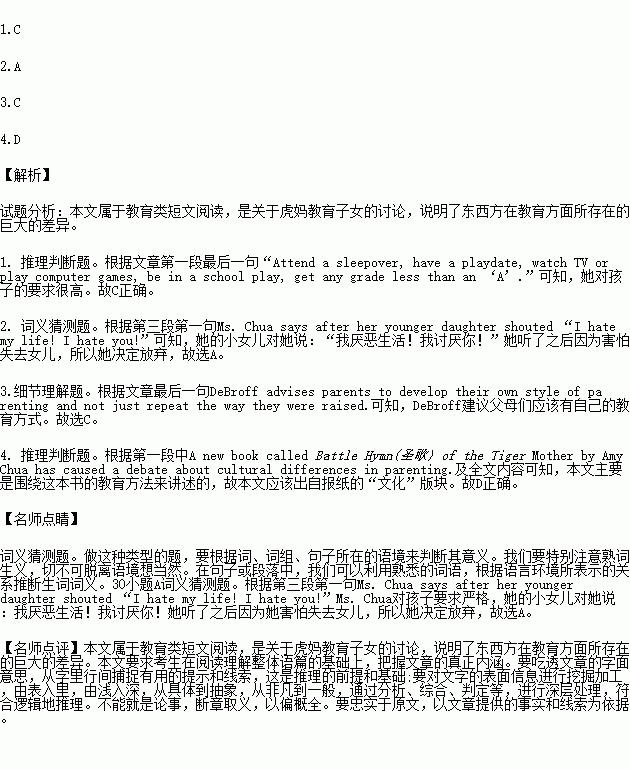题目内容
A new book called “Battle Hymn of the Tiger Mother” by Amy Chua has caused a debate (争论) about cultural differences in parenting. Amy Chua is a teacher in an American university and both of her parents are Chinese. In the book, Ms. Chua writes about how she taught her daughters. She told NBC television that she had a clear list of what her daughters were not allowed to do, such as having a play date, watching TV or playing computer games and getting any grade less than an A.
Many people are against Amy Chua’s parenting style (风格), even her husband, who is American. They say it is rude and unfair to children. But she says her parents raised her and her three sisters in that way.
Ms. Chua says after her younger daughter shouted “I hate my life! I hate you!” she decided to retreat because she was afraid of losing her daughter. But she also says American parents often have low expectations of their children’s abilities.
“The debate is about what it means to be a successful parent and what it means to be a successful child,” said Stacy DeBroff, who has written four books on parenting. She says Amy Chua’s parenting style is not limited to Chinese families. It is a traditional way of parenting among immigrants (移民). They hope to get a better future for their children.
She also sees a risk (风险). When children have no time to be social or to develop their own interests, they might not develop other skills that they need to succeed in life. DeBroff advises parents to develop their own style of parenting and not just repeat the way they were raised.
1.Which of the following words can best describe Amy Chua?
A. Polite.B. Cruel.C. Strict.D. Popular.
2.The underlined word “retreat” in Paragraph 3 is closest in meaning to _____.
A. give upB. go onC. go outD. give out
3.According to Ms. DeBroff, _____.
A. Amy Chua’s parenting style should be forbidden
B. Americans should learn from Amy Chua
C. parents should have their own parenting style
D. Amy Chua’s style is bad for children’s growth
4.In which part of a newspaper can you read the passage?
A. Business.B. Entertainment.C. Sports.D. Culture.
 新思维假期作业寒假吉林大学出版社系列答案
新思维假期作业寒假吉林大学出版社系列答案




 No bicycle registration---------------------------------------------------$25
No bicycle registration---------------------------------------------------$25